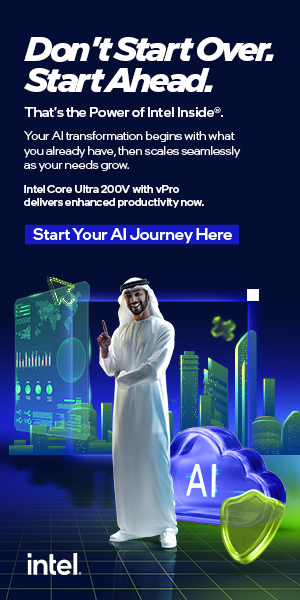Accelerating Manufacturing Innovation at Michelin With Data and AI
The French tire manufacturer’s AI efforts have enhanced value creation, according to the company’s chief data and AI officer.
Topics
News
- In 5 Years, Everyone Will Have an AI Companion, Says Mustafa Suleyman
- Talent Boomerang: Mira Murati’s Thinking Machines Loses Two Co-Founders to OpenAI
- YouTube Allows Parents to Limit Kids’ Shorts Viewing Time
- What Scott Adams' Dilbert Got Right About Power at Work
- Salesforce Rolls Out Slackbot as an AI Agent
- Zoho Launches First Middle East Data Centers in UAE

Carolyn Geason-Beissel/MIT SMR | Getty Images
HOW DOES A MANUFACTURING COMPANY founded in the 19th century apply data and artificial intelligence to transform its business?
At Michelin Group, a French multinational manufacturing company founded in 1889 by the brothers Édouard and André Michelin, today’s leaders are figuring that out. Michelin is the second-largest tire manufacturer in the world and also produces other engineered materials, including components for critical applications in fields as varied as mobility, construction, aeronautics, low-carbon energies, and health care. The company has 128 production facilities and employs nearly 130,000 people in 63 countries. (It’s also known for its travel guides and the Michelin stars it awards to the world’s finest restaurants, but that’s a topic for another day.)
Michelin is focused on using data and AI as high value-added levers that enable efficiency across the value chain. This effort involves two primary areas: improving core business processes and innovating new ideas.
Embedding AI in Core Business Processes
Michelin’s data efforts are led by group chief data and AI officer Ambica Rajagopal. She joined the company as group chief AI officer in 2020 after having led data, analytics, and AI functions for other organizations, including Cummins and Fidelity Investments. At Michelin, “in the last three years, we have built AI expertise, resulting in enhanced value creation,” Rajagopal told us.
Data, analytics, and AI have been well integrated into business processes within Michelin, with over 200 current AI use cases that support essential functions and businesses. AI is already being used in production processes to improve predictive machine maintenance, enhance data analysis and simulation models, and automate precise repetitive tasks.
Take, for example, end-of-line visual tire inspection. Looking for defects is a critical process that is often time-consuming and costly. Michelin uses AI-augmented machines it calls IRIS to partially automate the manufacturing defect inspection process. The technology has improved both the efficiency and the experience of inspectors. “One hundred percent of our tires are controlled manually and visually” during the inspection process, Rajagopal said. “This is a complex ergonomic task, from a physical and concentration point of view.” IRIS was developed in-house and is protected by more than 20 patents, she noted.
“The ambition of tools like IRIS is to improve workforce productivity,” which allows manufacturing teams to focus on applying their unique skills, Rajagopal explained. When IRIS identifies a potentially defective tire, it is human know-how that makes the difference: Operators remain accountable for the final decision. Their skills and expertise are mobilized on the core issues rather than on repetitive tasks.
AI is also being used to optimize supply chain and inventory management. In the company’s supply chain, for example, machine learning-based forecasting tools help Michelin improve demand forecast accuracy and proactively detect stock outages.
Leading AI Innovation in the Tire Business
Michelin believes that data, analytics, and AI can play a central role in innovation, which some 6,000 employees, across 13 countries, are working on. One use case is employing analytical AI for quantitative modeling and prediction. The goal is to use AI to absorb complexity and enhance decision-making by the Michelin workforce. “We have been building expertise through experimentation and research in AI for many years,” Rajagopal said.
Other types of AI, such as forecasting, computer vision, and now generative AI, have powered innovation in quality, energy monitoring, customer knowledge, and performance prediction within Michelin, Rajagopal told us. “The ability of AI to model complex processes and detect predictive signals makes it an important lever for maximizing value for our customers, employees, and partners,” she added.
Michelin runs external innovation and exploration events that help it scan the startup ecosystem globally to identify and then incorporate best-of-breed AI solutions, such as Databricks and Dataiku, into its platforms. The company held an AI challenge event in India in 2024 that was designed to jump-start the use of AI agents within Michelin by harnessing the booming AI startup ecosystem in India. The company hosted its first AI for Business Day in 2024, with over 1,100 participants in four Michelin global locations learning about how AI is being used across the company. Michelin is currently expanding its AI Center of Excellence; piloting AI across business lines; and forming strategic partnerships with industry leaders, including Microsoft and Rockwell Automation, to codevelop AI solutions.
The company is committed to governing the ethical integration of AI. Responsible deployment of AI at Michelin is based on three fundamental principles: AI systems should be people-centric; the company is committed to building and using explainable AI systems where necessary; and there will be clarity on who is responsible for each AI system used. “We see a lot of applications where AI will act as a copilot, combining its capabilities with human skills; support human intelligence; and improve decision-making capacity,” Rajagopal said.
Responsible AI adoption; AI’s alignment with environmental, social, and governance goals; and the use of AI to support the company’s net-zero and circular economy ambitions — including the use of renewable, sustainable materials in its tires — are top organizational priorities. Michelin data scientists’ and AI experts’ responsible approach to AI entails developing applications that comply with the values of transparency, reliability, and ethics. This approach is maintained for both explorations and deployments, ensuring that data accuracy and privacy are prioritized.
AI Leadership at Michelin
Rajagopal said that Michelin leadership actively champions data and AI and promotes digital upskilling, ethical AI use, and cross-functional collaboration. The leadership team participates in learning expeditions, internal training, and exchanges with peers to inform the vision of AI use in the company’s processes and businesses. Leadership has also established governance structures, including a data office, to steer the building of Michelin’s data foundations and large AI programs.
In addition to the typical responsibilities of the chief data and AI officer — driving strategy to align with the company’s mission and overseeing the functional, technical, and behavioral transformations needed to make the group truly data driven — the office’s mission is to monitor efficiency in terms of results and costs, Rajagopal explained. A key lever for AI adoption is the evaluation of potential value from proof-of-concept projects, followed by a post-deployment assessment of the value delivered. Rajagopal noted that Michelin has received considerable benefits from generative AI projects, including document processing in the tax department, social listening in marketing, and root cause analysis in manufacturing, as well as many other smaller use cases.
Rajagopal told us that the company’s efforts are paying off: Michelin’s commitment to AI transformation has led to an ROI from AI projects of over 50 million euros per year, with increases of 30% to 40% annually for the past three years.
Of course, true AI transformation requires not just a strategic approach led by senior management but also a bottom-up approach in which employees are empowered. Rajagopal said that within Michelin, each employee understands the power of data and their role in creating value and supporting Michelin’s strategy. “Our focus is to enable our businesses to have access to high-quality data, targeted analysis, and AI tools in order to bring innovations to market quickly,” she said. These tools, she added, are designed to simplify and consolidate processes by making them smarter and more intuitive.
Looking to the future, Rajagopal is hopeful and excited. “Artificial intelligence represents a significant opportunity, and its development focuses on improving the attractiveness of our workplaces, the sustainability of our plants, and the competitiveness of our products,” she said. “As a manufacturing business, we see AI as a technology with huge potential to make work more rewarding for our people. It is increasing their productivity and freeing time for creativity and collaboration.”










